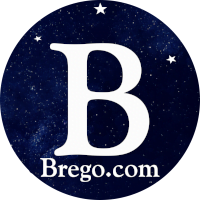 Disrupting the Status Quo: How Web3 Could Revolutionize Mortgages
Disrupting the Status Quo: How Web3 Could Revolutionize Mortgages
Syndicated By Web3.Mortgage
The traditional mortgage process is notorious for its complexity, inefficiency, and lack of transparency. Prospective homeowners face a labyrinthine journey filled with mountains of paperwork, lengthy approvals, and often encounter hidden fees and terms. Web3, a new paradigm driven by blockchain technology and decentralized finance (DeFi), promises to revolutionize various industries, and the mortgage sector is no exception. This article explores the potential of Web3 to democratize homeownership by making the process more accessible, efficient, and equitable.
Key Facts and Findings
The current mortgage process suffers from several inefficiencies:
- Time-consuming approvals: A recent study by Freddie Mac [1] found that the average time to close on a mortgage is 49 days, with significant delays due to manual paperwork processing.
- Unequal opportunities: A report [2] by the Mortgage Bankers Association indicates that minority homeownership rates in the US remain significantly lower than those of white Americans. This suggests a bias in the traditional mortgage lending system.
- Lack of transparency: Borrowers often navigate a complex web of hidden fees and terms, making it difficult to compare offers and understand the true cost of a mortgage.
Proponents of Web3 mortgages believe that blockchain technology can address these issues by:
- Streamlining the application process: Smart contracts can automate loan applications and underwriting processes, potentially reducing approval times.
- Increasing transparency: Blockchain technology creates an immutable record of all loan transactions, providing greater transparency for borrowers and lenders.
- Promoting fair lending practices: Decentralized protocols could remove bias from the lending process, potentially creating fairer opportunities for underserved communities.
Examples of Relevant Companies/Organizations
Several startups and established players are exploring the potential of Web3 in the mortgage industry. Here are a few examples:
- MakerDAO: A leading DeFi platform that allows users to borrow and lend cryptocurrencies through a decentralized autonomous organization (DAO). MakerDAO’s technology could potentially be adapted to create DeFi-based mortgage pools.
- Propy: A blockchain-based real estate platform that facilitates property sales and fractional ownership using NFTs. Propy’s platform could be used to tokenize mortgages and create a more liquid secondary market.
- Harbor: A regulated DeFi platform that focuses on tokenizing real-world assets, potentially including mortgages. Harbor could play a role in bringing traditional mortgage lenders into the Web3 space.
Results and Initiatives Underway
The Web3 mortgage space is still in its early stages, but there are promising developments underway:
- Development of Web3 mortgage platforms: Several startups are developing Web3-based mortgage platforms that aim to simplify the application process, reduce costs, and connect borrowers with global liquidity pools.
- Decentralized identity (DID) solutions: Decentralized identity solutions are being explored to streamline verification of borrower information and reduce reliance on traditional credit scores.
- Regulatory frameworks: Discussions are underway to establish regulatory frameworks for Web3 mortgages to ensure consumer protection and financial stability.
Challenges and Potential Issues
While Web3 offers exciting possibilities for the mortgage industry, there are significant challenges to overcome:
- Regulation: The regulatory landscape surrounding DeFi and Web3 mortgages is still evolving. Clear regulations are needed to ensure consumer protection and financial stability.
- Security: Blockchain technology is generally secure, but vulnerabilities still exist. Robust security measures are crucial to prevent hacking and fraud in Web3 mortgages.
- Market Volatility: The cryptocurrency market is known for its volatility, which could pose a risk for both borrowers and lenders in Web3 mortgages.
- Accessibility: Widespread adoption of Web3 mortgages hinges on broader public adoption of cryptocurrency and DeFi technologies.
The Takeaway
Web3 technology has the potential to revolutionize the mortgage industry by making homeownership more accessible, efficient, and equitable. By leveraging blockchain technology and DeFi protocols, Web3 mortgages could streamline the application process, reduce costs, and create a more transparent and inclusive lending system.
However, significant hurdles remain. Regulatory frameworks need to be established to ensure consumer protection and financial stability. Security measures must be robust to prevent fraud and hacking. The volatility of the cryptocurrency market poses a risk for both borrowers and lenders. Additionally, widespread adoption hinges on increased public familiarity and trust in DeFi and cryptocurrency technologies.
Despite these challenges, the potential benefits of Web3 mortgages are undeniable. As Web3 continues to develop and regulations evolve, it will be fascinating to see if it can transform the way we buy homes and unlock a new era of financial inclusion.












